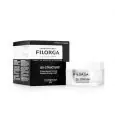
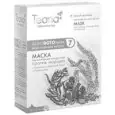
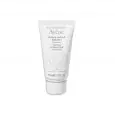
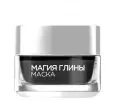
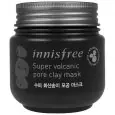
Face masks are truly women's secret weapon. These concentrated multi-component mixtures, designed for intensive care of the face and neck, are capable of solving an incredible number of problems - moisturize, nourish, dry, exfoliate, tone, whiten, rejuvenate. And the ever-growing beauty industry continues to present girls with more and more new options! Special half masks for the eye area - patches, indelible sleeping pack night masks, fabric magnetic masks, film masks. Finding the only one among them that will be the best for you is quite difficult. Our rating includes the best face masks that the cosmetics industry offers us.
Choosing a face mask
First of all, you need to decide what effect you want to get from the mask and find out whether it is suitable for your skin type. For example, as part of masks for dry and sensitive skin There should be no alcohol, but natural oils, vitamins, polyunsaturated fatty acids are welcome! Among the desired ingredients of masks for oily and problem skin — essential oils of chamomile and tea tree, allantoin, aloe vera, clay, zinc.
You also need to decide where the mask will be used. So, for home use, products in jars and tubes are perfect, but on trips and business trips it is much more convenient to take disposable masks in a sachet: make it and throw it away. For express care, when you urgently need to get yourself in order before some important event, it is better to choose alginate masks or hydrogel patches.
How to enhance the effectiveness of masks
It would seem that applying a mask is the simplest procedure that even a teenager can cope with with his eyes closed. But even here you need to know about some subtleties that affect the final result.
Firstly, before using the mask, you should qualitatively cleanse the skin - not only wash your face, but also wipe your face with lotion or tonic; It wouldn't hurt to use a scrub. The ideal option is to pre-steam the skin over a decoction of herbs so that the pores open well and absorb the maximum of valuable substances.
Secondly, during the procedure need to lie down. Forget about the habit of putting on a mask and go finish cooking borscht, talk on the phone with a friend or iron your husband’s shirt! Popular blogger, cosmetologist and author of books on skin care Olga Fem explains that the mask is a fairly heavy substance, and if you wear it in a vertical position, it will pull the skin down, giving the opposite effect instead of a tightening one.
Thirdly, after thoroughly cleaning your face, do not forget to remove the mask apply cream on the skin of the face.
And don’t overuse masks! Two or three times a week is enough.
And our rating, created taking into account the opinions of professionals and reviews of ordinary users, will help you choose the best face mask according to your skin type.
Cloth or cream? Or maybe clay? Or is a scrub mask better? Let us help you understand the variety of face masks.
- Types of masks
- Mineral masks
- Gel masks
- Cream masks
- Night masks
- Fabric masks
- Exfoliant masks
- Top 10 face masks
Types of masks
Globally, all masks can be divided into three types:
those that need to be washed off with water;
removed without water;
not needing to be removed.
Now let’s list the main types of masks and tell you more about them.
Mineral masks
These are mixtures based on natural mud or clay (kaolin, gassoul). They are rich in minerals and are able to absorb excess sebum and dirt, deeply cleansing the pores. This detox mask is a must have for those with oily, problem or combination skin. Apply 1-2, maximum 3 times a week.
The exposure time of the mineral mask is strictly regulated © iStock
Clay masks should not be left on the face. Don't wait until it cracks and starts falling off in pieces. The duration of action is no longer than 15 minutes. To prevent drying out and enhance effectiveness, it is recommended:
use a mask in the shower;
Apply a damp cloth on top and lie there until the product works;
irrigate your skin with thermal water over the mask.
Gel masks
They are a type of moisturizing mask; they can quickly fill dehydrated skin with moisture and invigorate tired skin. The composition contains hydraulic clamps:
The list of additional ingredients includes plant extracts and water-soluble vitamins that fit well into the formula of hydromasks. The jelly-like texture has a slight cooling effect, so it is suitable as an after-sun SOS product.
Cream masks
Cream masks are multifunctional © IStock
These formulas combine nourishing oil ingredients and hydrofixatives, as well as vitamins, antioxidants, and whitening components. Cream masks have a wide spectrum of action, but are mainly designed to nourish and restore dry and mature skin.
Night masks
They are very similar to night creams, but their formulas are more concentrated and their textures are lighter. Such masks are quickly absorbed and remain on the skin throughout the night.
Fabric masks
A woven base with slits for the eyes, nose and mouth, impregnated with a gel with hydro-fixing agents, is an Asian thing that quickly conquered the world market. Yes, fabric masks have long been used by cosmetologists and found in the lines of luxury brands, but they began to be widely used thanks to Asians.
There is no need to wash your face after removing the sheet mask © iStock
The base of the mask, made of cellulose, fits tightly to the face, following its contours and holds firmly in place. So you can go about your business while the mask is on display.
Exfoliant masks
Masks with abrasives can have any texture - clay, gel, cream. Accordingly, they are addressed to different skin types.
Top 10 face masks
Cleansing
Mask “Magic of clay. Cleansing and mattifying”, L’Oréal Paris Contains three types of natural clay plus eucalyptus extract for a refreshing effect. Cleanses the pores of oily and problematic skin, prevents the appearance of imperfections.
Deep cleansing pore mask, Clarifying Clay Masque, SkinCeuticals Thanks to the formula with kaolin, bentonite and plant extracts, it frees pores from impurities, significantly tightens them and evens out skin texture, and also reduces sebum production.
Moisturizing
Intensely moisturizing mask Hydraphase Intense, La Roche-Posay combines hyaluronic acid, shea butter and waxes, deeply moisturizes dry and dehydrated skin of any type.
Sheet mask “Hydration + comfort” for dry sensitive skin, Garnier — the cellulose base is impregnated with a gel concentrate with hyaluronic acid and chamomile extract, which means hydration and an anti-stress effect are ensured.
Soothing mineral mask, Vichy with vitamin B3, glycerin and thermal water helps restore water and mineral balance and relieves discomfort.
Exfoliating
Mineral peeling mask “Double Radiance”, Vichy contains two types of exfoliating components: fruit acids gently renew the skin, particles of volcanic origin remove dead cells. For all skin types.
Exfoliant mask Énergie de Vie, Lancôme with a gel texture and extracts of lemon balm, ginseng, cranberry, as well as abrasive particles, evens out the skin texture and tones it.
Skin glow mask Turmeric & Cranberry Seed, Kiehl’s prepares the skin for subsequent stages of care: crushed cranberry seeds gently exfoliate dead cells, renewing the skin, and turmeric energizes you in the morning.
Night
Night moisturizing restorative mask Aquasource Everplump Night, Biotherm - The gel formula creates a natural barrier that prevents moisture loss, and algae extract restores skin while you sleep. Does not contain parabens, silicones, artificial dyes.
Night cream-mask “Luxury of nutrition”, L’Oréal Paris with muscat rose and argan oils nourishes the skin without leaving a greasy film. A light floral aroma soothes you before bed.
Cosmetic masks provide better results when compared to daily care products. Their use will help solve problems with skin hydration and nutrition, as well as eliminate signs of fatigue and restore a healthy color. Many types of cosmetic face masks guarantee quick action, but more often the effect is short-lived and only visual. For deeper hydration, nutrition and treatment, other masks are used, the results of which will be obvious after a course of use.
Types of masks
Globally, all cosmetic masks for facial skin are divided into three groups:
- those that need to be washed off with water;
- what needs to be removed with a special product;
- compositions that do not require rinsing.
Industrial varieties of care cosmetics are divided according to the form of release into the following types of face masks:
- creams and gels;
- film;
- on alginate;
- textile masks;
- collagen sheets;
- silicone;
- paraffin;
- gypsum;
- biomatrices;
- for modeling and others.
Each type has its own specific application. Paraffin masks increase the effectiveness of facial cleansing. The purpose of fabric sheets depends on the active ingredients in its composition. Impregnation can provide nutrition, hydration or tightening.
Modeling products are available in the form of a gel based on ginseng or aloe. The mask also contains kaolin, calcium sulfate and minerals. The thickly diluted powder is applied to the face in a thick layer so that the temperature under the mask remains high. The warming effect ensures smoothness and elasticity of the skin. After using the product, you need to do manual lymphatic drainage to relieve swelling.
Properties and action
All cosmetic face masks are designed to restore beauty and health to the skin. This is a general definition, but there is a more detailed classification of funds according to their purpose.
Cleansing
Most of these masks are made on a clay basis, but the composition may also contain sea mud, peat or silt. These substances help cleanse the skin of dead particles, clogged pores and provide freshness and health to the skin. The cleansing type can include sauna masks and peelings. Peeling agents can be mechanical and chemical. In the first case, the composition contains a fine abrasive, such as pumice or apricot kernels. Chemical peels contain various acids in low concentrations, providing a cleansing effect on the upper layer of the dermis.
Hydration
Such compositions are recommended for any skin type and any age category. In industrial masks, hyaluronic acid provides a moisturizing effect. Also, lactic acid, collagen, extracts of herbs, fruits, and so on are added to the products.
Nutrition
The desired effect in industrial products is provided by vegetable oils. In addition, the nutritional masks contain vitamins E and A, plant extracts and bee products.
Eliminate signs of aging
These masks are designed for mature skin. Their main task is to tighten facial contours, smooth out wrinkles, increase elasticity and maintain youth. The anti-aging group includes products with a smoothing effect, as well as modeling and lifting compositions. Professional cosmetologists use collagen and placental mixtures for mature skin. In addition, the composition contains proteins, elastin, amino acids, plant extracts and vitamin components.
For problem skin
Skin with special needs (greasy shine, excess sebum, clogged pores) requires special care. Many masks are made using seaweed, clay or mud. These substances can relieve inflammation, regulate sebum secretion and narrow pores. Special anti-acne products dry out inflammation, speed up their healing and protect against the appearance of new formations.
We offer you to look at the best cosmetology care products:
Whitening
The main property of such products is to even out the complexion and fight blemishes. Whitening compositions contain substances that affect the synthesis of melanin and activate the exchange between cells. These are white clay, vitamin C and A, sulfur, zinc oxide and vitamin E.
For sensitive skin
Such masks cope with skin irritation, which is caused by increased sensitivity to weather changes, ultraviolet radiation, and so on. The products often contain chamomile, lavender extracts, shea butter, jojoba, etc.
Main Components
The composition of a face mask is determined by its purpose. There are algae, clay, paraffin components, extracts of plants, herbs, and components of animal origin. Other raw materials are also used: alginates, flaxseeds, gelatin, kaolin, oatmeal, bentonite, fats and oils, synthetic plastics, mineral waxes and other components.
The industrial name of face masks indicates its type, purpose and main effect. Plant extracts are added to the base for greater effectiveness. Products for oily and problem skin contain sulfur, zinc oxide and salicylic acid. You can also find many active ingredients in masks, in particular nourishing or moisturizing ones. Flavors and dyes are added to some mixtures because their base has an unpleasant odor (for example, mud or algae masks).
Classification based on skin type
Cosmetic face masks are divided according to the skin type for which they are intended. Normal skin, combination skin, sensitive to allergens and prone to dryness or oily skin require completely different formulations. With increased fat content, acne is more likely to form, blackheads appear, this type is characterized by a greasy sheen and enlarged pores. When dry, the skin flakes a lot, reacts poorly to ordinary water - after washing, a feeling of tightness occurs. Often, irritation appears on the skin, resembling a rash in shape; in this case, face masks and types of care products are selected carefully, taking into account the tendency to allergic reactions.
Basically, the type of face mask is determined by the problem of the skin. The composition of products for sensitive skin contains mainly natural ingredients, high-quality oils or they have a light creamy structure. Cleaning with scrubs is not a suitable option for sensitive types, and it is preferable to use warm water to wash off the mask. After washing, the face is blotted with a napkin and nourished with a special cream for allergy-prone skin.
Conclusion
The frequency of use of cosmetics for simple care or for medicinal purposes depends on the individual characteristics of the skin, its needs and the type of product used. The best results from applying masks are achieved if the procedures are carried out in a course or once or twice a week. Oily skin, for example, requires daily cleansing. Collagen professional formulations can be used a maximum of twice a year for ten procedures. An individual care regimen and high-quality products can be an excellent basis for maintaining the elasticity of facial skin and its youth.



